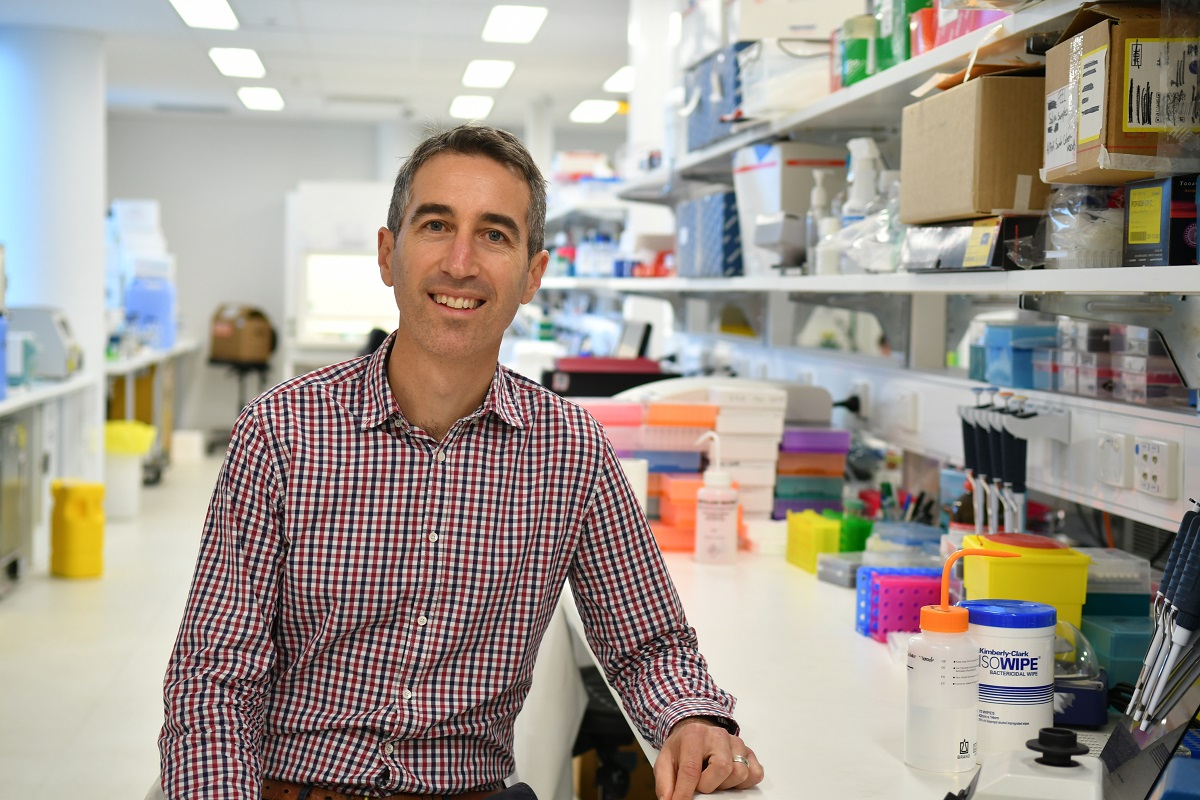
June 15 to 21 is Men’s Health Week, a time to promote awareness and a proactive approach to men’s health. This week, we chat to Associate Professor Luke Selth who leads one of Flinders University’s newest labs, the Prostate Cancer Research Group.
What do you do at Flinders University?
I lead the Prostate Cancer Research Group, which is in the College of Medicine and Public Health and the Flinders Health and Medical Research Institute (FHMRI). As the name suggests, my team works on prostate cancer, but more specifically we undertake basic research to understand how prostate tumours spread around the body and become resistant to therapy. We then use this information to undertake more translational research into the development of new therapies and markers.
My group has only been at Flinders for about six months, and I’m very keen to engage with more of the local researchers in the near future.
What inspired you to follow this path?
Like most people, my life has been impacted by cancer; my mum died from an aggressive blood cancer and my grandfather (Pop) succumbed to prostate cancer. These events had a major influence on my career trajectory: I actually did Honours and PhD research in plant biology (I was studying a nasty little virus that infects tomato plants!) but then decided to transition to the cancer field.
Putting aside personal reasons, cancer research is an incredibly stimulating field to work in because it’s at the cutting-edge of molecular biology, biochemistry and bioinformatics. It also moves super fast, which is both exciting and a little daunting at times. I’m genuinely astonished when I look back at how much has changed in the past 10-15 years, most importantly for patients but also in terms of the way that we carry out research.
Can you describe a challenge in your life and how you dealt with it?
I’ve had many personal and professional challenges over the years. While I think I’m a fairly resilient person, I’d say that without doubt the most important factor in dealing with these challenges has been my amazing network of family, friends and co-workers, who never fail to support me through difficult times. In this respect I’ll also give a shout out to Flinders – this has been a tough year for various reasons but I’ve been amazed by the support I’ve had from colleagues here, most of whom I’ve only known for ~six months.
What is something you are most proud of?
I’m sure a lot of people give this answer but I’m obviously very proud of my kids. Not only am I proud of them, but they are hugely entertaining – no one makes me laugh out loud as often as they do. I honestly have no idea where their lives will take them but I’m excited about the prospect of watching and guiding their journeys.
What does a normal day look like for you?
One thing I love about my job is its diversity. Over the course of a single day, some of the things I’m likely to do are: talk to my staff and students (PhD and Honours) about their research; work on a grant application; write a scientific paper; read and/or review a journal article; have a chat to a colleague (local, national or international) about science and/or a collaborative opportunity; and engage with prostate cancer patients that provide input into our lab’s research.
All of these tasks keep me very busy so I hardly ever make it into the lab these days, which is a bit sad for me – my team thinks it’s for the best though, as my skills ‘on the tools’ have declined during my transition to a lab head and there is a running joke that my entry into the lab brings with it an element of danger!
How do you like to relax or spend your spare time?
My wife and I have two young girls (seven and five years old) with another baby on the way, so a fair bit of our spare time is taken up with child-related activities. We are a pretty active family so we regularly go for bike rides, play some sport (tennis is the current favourite) or visit a park.
Ultimate relaxation time for me involves getting stuck into fantasy novels, a genre I like for many reasons but not least because I can pretty much switch my brain off while reading!

